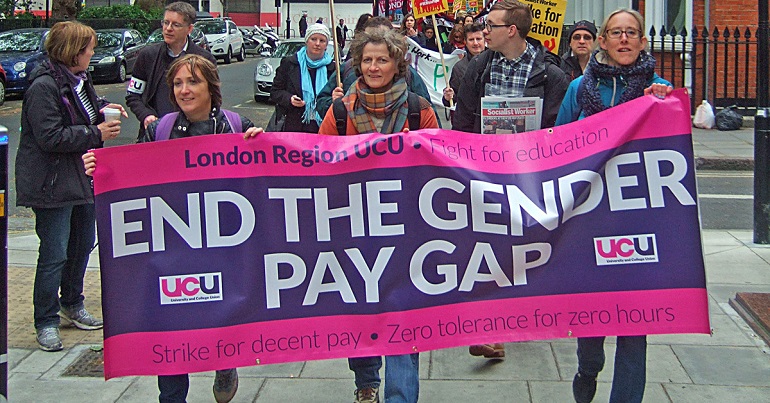The gender pay gap is currently at 14.9%

The Trades Union Congress (TUC) has published analysis of the gender pay gap today. The union confederation has found that women effectively work for two months of every year for free when compared to men.
With the gender pay gap currently standing at 14.9%, the TUC says that women are on average working 54 days – nearly eight weeks – for free.
Analysis from the TUC also shows that the gender pay gap is wider for older women. Women aged between 50 and 59 experience a 20.8% gender pay gap, meaning they work the equivalent of 76 days for free. The gender pay gap for over 60s is 18.4%
The TUC has also found that the gender pay gap is highest in the South East of England, at 17.9%.
Employers with more than 250 staff have a legal requirement to publish and report on their gender pay gap. However, despite this requirement being introduced in 2017, women are still paid considerably less than men, with the difference being particularly acute in some industries.
The sector with the largest gap is finance and insurance, where it stands at 31.2%. That means for women in the finance sector, women work 114 days for free on average.
Paul Nowak, the TUC’s general secretary, said: “Working women deserve equal pay. But at current rates of progress, it will take more than 20 years to close the gender pay gap. That’s just not good enough. We can’t consign yet another generation of women to pay inequality.
“It’s clear that just publishing gender pay gaps isn’t working. Companies must be required to publish action plans to explain what steps they’ll take to close their pay gaps. And bosses who don’t comply with the law should be fined.
“The pandemic highlighted that we can do more to help women balance their caring responsibilities and work. Flexible working is key to keeping mums in jobs and is our best way of closing the gender pay gap. We should change the law so that all jobs are advertised with all the possible flexible options clearly stated. And all workers must have the legal right to work flexibly from their first day in a job.”
Chris Jarvis is head of strategy and development at Left Foot Forward
Left Foot Forward’s trade union reporting is supported by the Barry Amiel & Norman Melburn Trust

Image credit: Sean Wallis – Creative Commons
To reach hundreds of thousands of new readers we need to grow our donor base substantially.
That's why in 2024, we are seeking to generate 150 additional regular donors to support Left Foot Forward's work.
We still need another 117 people to donate to hit the target. You can help. Donate today.



